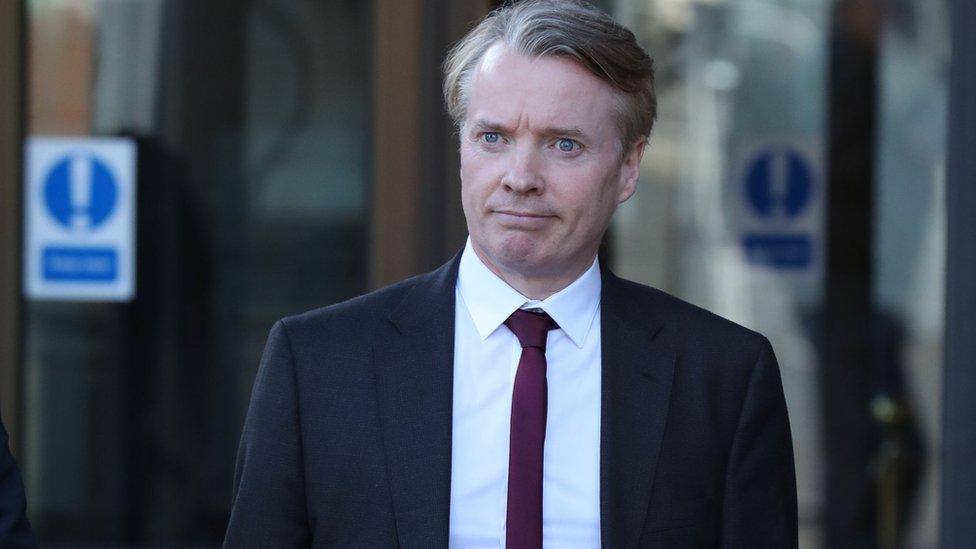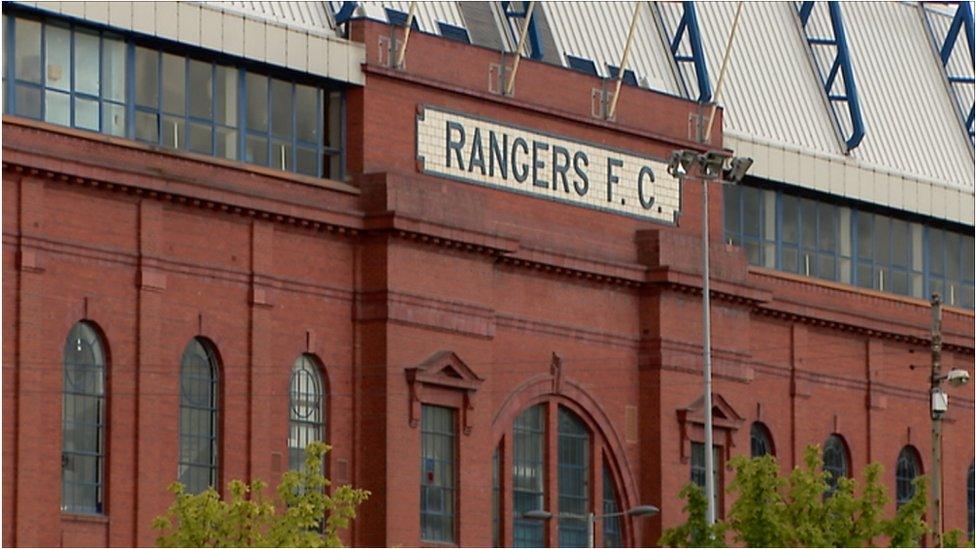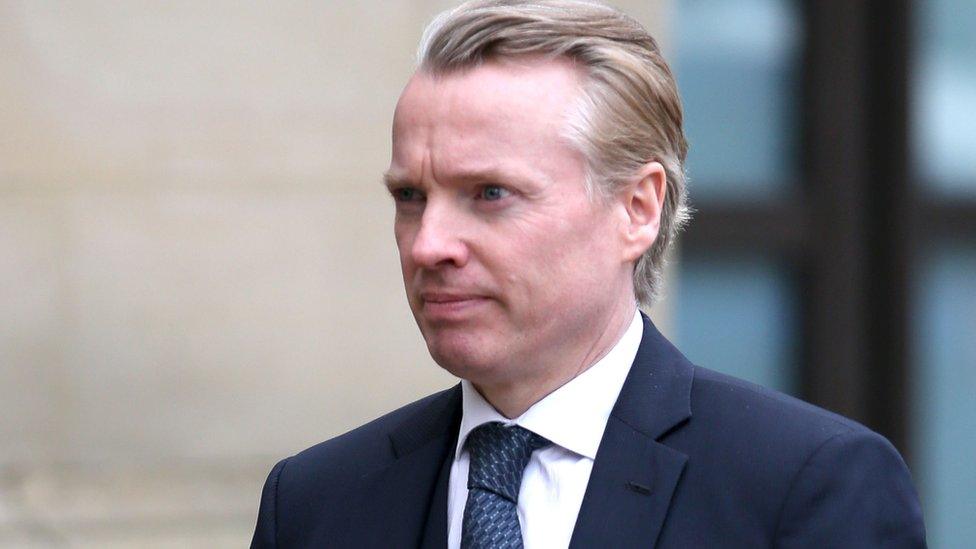Rangers fraud trial: 'Nothing' spent on Craig Whyte checks
- Published

Craig Whyte is on trial at the High Court in Glasgow
Sir David Murray's team spent "nothing" on checks of Craig Whyte prior to his Rangers takeover, a court has heard.
The former Rangers owner's lawyer said "comfort" was instead taken from the fact that Mr Whyte had "reputable" advisers.
The evidence emerged in the trial of Craig Whyte who is accused of a fraudulent acquisition of Rangers in 2011.
He denies a charge of fraud and another under the Companies Act.
During questioning of solicitor David Horne - a key advisor to Sir David Murray - defence QC Donald Findlay queried how much was spent appraising Mr Whyte's interest in Rangers.
The jury has already heard how Mr Whyte struck a £1 deal to buy Sir David's controlling stake at Ibrox in May 2011.
'Right reasons'
Prosecutors claim Mr Whyte helped fund the takeover with a loan from the firm Ticketus against three years worth of season ticket sales.
Sir David earlier told the trial at the High Court in Glasgow that he would "categorically not" have handed the club over if he had known that was how the deal was to be financed.
Donald Findlay suggested that the Murray team wanted to sell "for the right reasons or not" provided Rangers bank debt was cleared.

Sir David Murray sold Rangers to Craig Whyte for £1
He asked Mr Horne how much was spent on "due diligence" of Mr Whyte before the takeover.
Mr Horne initially said "not very much at all".
The QC suggested: "£20? More? Less?"
The witness responded: "I don't know - possibly nothing."
Mr Findlay then said: "That was what was spent - nothing?"
Mr Horne agreed.
Ticketus involvement
The advocate suggested that if proper checks had been done, they would have known "his first piggy bank to his inside leg measurement".
But, Mr Horne replied: "We took comfort that he had reputable advisors.
"If anything had been thrown up that suggested any impropriety, the deal would not have gone ahead."

Rangers was sold to Craig Whyte for £1 in 2011
Mr Findlay then claimed a "whole range of people" knew about Ticketus' involvement.
Mr Horne earlier told how he only learned of the ticketing firm's role after Mr Whyte's deal to buy Rangers had gone through.
The QC said that if the Murray team wanted to know "where the money came from" they could have carried out the due diligence.
He also claimed that all Sir David Murray eventually wanted to do was to sell Rangers to Craig Whyte, adding "it is as simple as that".
Prosecutor Alex Prentice QC later went on to ask Mr Horne: "On the face of it, was Murray keen to complete the deal?"
Bank debt
The witness replied: "Yes."
Mr Prentice continued: "Would he have sold no matter what?"
Mr Horne said: "No."
Prosecutors allege Mr Whyte pretended to Sir David Murray, and others, that funds were available to make all required payments to acquire a "controlling and majority stake" in the club.
The Crown alleges Mr Whyte had only £4m available from two sources at the time but took out a £24m loan from Ticketus against three years of future season ticket sales.
The court has heard the sale was eventually made to Mr Whyte for £1 but came with obligations to pay an £18m bank debt, a £2.8m "small tax case" bill, £1.7m for stadium repairs, £5m for players and £5m in working capital.
The second charge under the Companies Act centres on the £18m payment between Mr Whyte's Wavetower company and Rangers to clear a bank debt.
The trial, before Judge Lady Stacey, continues.
- Published25 May 2017

- Published24 May 2017

- Published22 May 2017

- Published19 May 2017

- Published18 May 2017
